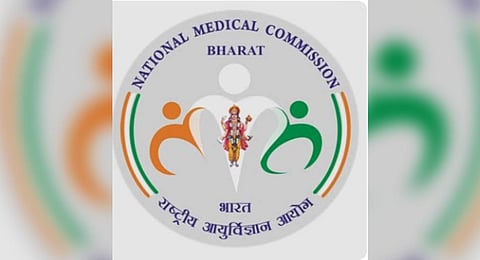

NEW DELHI: Hypertension and diabetes are some of the common lifestyle diseases seen in rural India according to a new survey conducted by the National Medical Commission (NMC).
Out of 4.61 lakh individuals surveyed, 17 per cent were found to be hypertensive. Additionally, 14.4 per cent of the 3,66,086 people screened for blood sugar levels were diagnosed with diabetes.
The survey also found 15 per cent of 57,940 children stunted, 10.5 per cent wasted, and 17.8 per cent underweight. Interestingly, five per cent of the children were found to be overweight.
The survey was carried out by around 500 medical colleges across 28 states and union territories, with 1,300 medical camps being held in villages as part of the village outreach program under the Family Adoption Programme (FAP) initiated by the Undergraduate Medical Education Board (UGMEB) of the NMC.
In the 2024 survey report for the first family adoption program, a total of 273,656 families, encompassing a population of 1,209,338 individuals adopted by medical students, were covered. Union Health Minister JP Nadda released the survey on the fourth anniversary of the NMC.
Additionally, both men and women underwent screening for their Body Mass Index (BMI) and waist-hip ratio.
The findings revealed that 12 per cent of women were underweight, while 24 per cent were classified as obese. For men, 12 per cent were found to be malnourished, and 22 per cent were identified as obese.
Out of the 40,829 children (6 to 59 months) screened, 31 per cent were found to be anaemic, while 38 per cent of non-pregnant women, 39 per cent of pregnant women, and 19 per cent of men were anaemic.
Twenty-two per cent of the respondents said they have the Ayushman Bharat Health Account (ABHA) ID.
While 48 per cent of those surveyed were from the 15-45 age group, 11 per cent were more than 60 years old, 2 per cent were children less than one year old, 26 per cent of beneficiaries were from the lower middle class, 25 per cent were from the middle class, and 15 per cent were from the lower class.
Over 85 per cent of the survey participants were MBBS students from the 2022 batch.
Officials said that over 6,000 faculty members from community medical and other specialities, along with an equal number of junior and senior residents, were part of this experimental learning initiative.
Speaking at the event, Nadda said that recent efforts to serve public health, especially the Family Adoption Program, will prepare MBBS students to become more humane and skilled clinicians. He also commended them for adding 25,000 Undergraduate and Postgraduate seats during the last four years.
According to NMC officials, FAP is a novel approach designed to take young medical students to the doorsteps of village households so that they get first-hand experience of real-world challenges faced by families in diverse socio-economic settings.
It aims to provide an experimental learning opportunity to Indian medical graduates towards community-based care, thereby enhancing health equity.